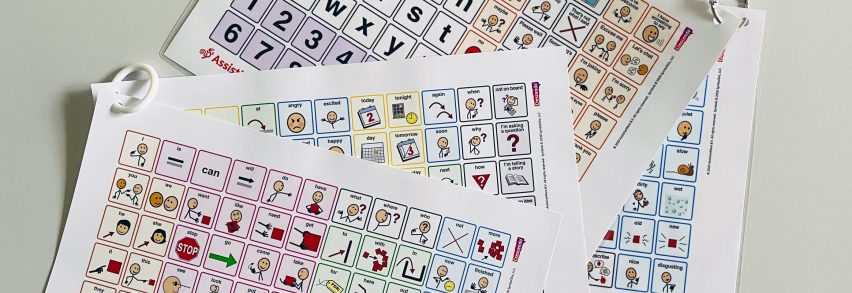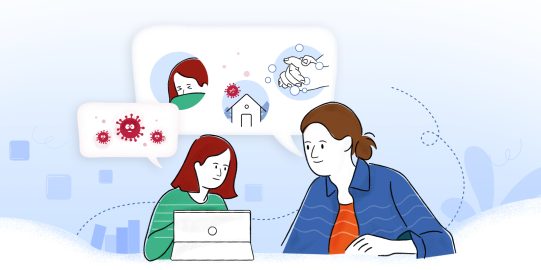Increased vulnerability
People with disabilities are more vulnerable than the average population. They are more likely to experience discrimination and violence. Nonspeaking people are even more at risk. From childhood, AAC users need support to communicate about these problems. They need to be able to self-advocate and report issues.
Support AAC users to speak about complex topics
As parents and teachers, we should speak with children about the things happening in their life and world. This gives children an opportunity to express fears and anxieties. It helps them understand what is happening in the world around them. Children who are learning to use AAC need support to join the conversation. Adults show children how to use AAC to speak about these kinds of topics. We model simple language for a young child, or someone just learning language. We model more complex language for a more advanced user.
Model more than the actual term
Discrimination and protest can be nouns or verbs. It is important not to focus too much on the specific term. These words may not already be in the AAC system. Instead, use adjectives and plain language (core words) to talk about these issues. When we describe and give meaning to these issues using the common words in the AAC system we do three things. First, we demonstrate how the AAC system can be used to speak about that topic. Second, we show the AAC user how to talk about things when the exact word is not in their system. Third, the symbols are a visual support to help the AAC user understand what we are saying verbally. The symbols offer what educators call a “scaffold” to support comprehension and future expression.
Two examples: Discrimination and Protest
We need to explain the concept when we speak about topics like discrimination or protest. We also need to talk about its meaning and significance. Let’s look at some examples for these two terms: discrimination and protest. Below, we provide examples of how to do this. Our examples are as short as two word messages, or as long as full sentences. Use the shorter messages for beginning AAC users.
It helps to look up the definition of a complex idea before you try to explain it with AAC. Discrimination is “the unjust or prejudicial treatment of different categories of people, especially on the grounds of race, age, or sex.” Protest is “a statement or action expressing disapproval of or objection to something.”
We can say a lot with AAC
AssistiveWare offers communication apps like Proloquo, Proloquo2Go, simPODD and Proloquo4Text. We have also made two kinds of light-tech communication boards. We have core word boards and quick communication boards. We download and print these for when we don’t have the app in front of us, or when the iPad battery is dead. We can use any of these AAC options to talk about complex ideas.





